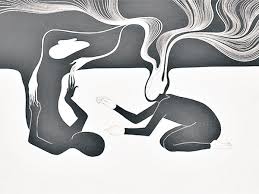
Through my work with thousands of clients I’ve unfortunately gained huge insight into the tragic epidemic of trauma that’s prevalent today. Movements like the ‘me too’ campaign highlighted the sexual aspects, but it’s much more than that. Trauma specialist Dr Peter Levine writes: It can perhaps be conjectured that unresolved trauma is responsible for a majority of the illnesses of modern mankind.
Unfortunately, I keep hearing stories about therapists and teachers who have not been taught how absolutely essential it is to create and maintain a safe physical, emotional and spiritual space as they work.
For students and clients alike, if you’re attending healings or classes, you must feel absolutely safe. If you should find that you don’t, it is most likely the wrong teacher or therapist for you. And if you’re experiencing any touch that for you is unacceptable, for instance when a teacher corrects a yoga asana, you must be confident in your boundaries and speak up!
There have been huge strides in understanding stress and trauma over the last 30 years. Simplistically, when the body is under stress and agitated, we’re put into the state of fight or flight. Amongst other things, the stress hormone cortisol suppresses the immune system in order to conserve energy reserves. And blood flow is directed to the hindbrain to ensure our short-term survival, while blood flow to the forebrain is reduced, decreasing our ability to engage in conscious action, reasoning and logic.
If stressful situations are not resolved, but escalate, the next stage is true trauma, with tonic immobility and hypo-activity. The situation is overwhelming. The person feels helpless and hopeless. The body is flooded with pain numbing opiates and the victim may feel a profound detachment or dissociation.
People who’ve had relatively safe, stable lives can have a wide range of experiences without triggering either hyper or hypo activity. But for people who’ve experienced chronic stress or repeated trauma, it takes much less to push them into reacting with rage and panic, or withdrawal and dissociation. These people may react to simple events, like innocent touch, in ways that from the outside appear to be inappropriate, because their brains have literally been hard-wired to experience certain things from a stressful or traumatic perspective.
It is of course so important for all of us to recognise this and as we work, to emphasise client boundaries and a hold a safe and sacred space.
Evelyn Brodie holds regular workshops at Unity. For upcoming workshops see the
Workshops page here.


